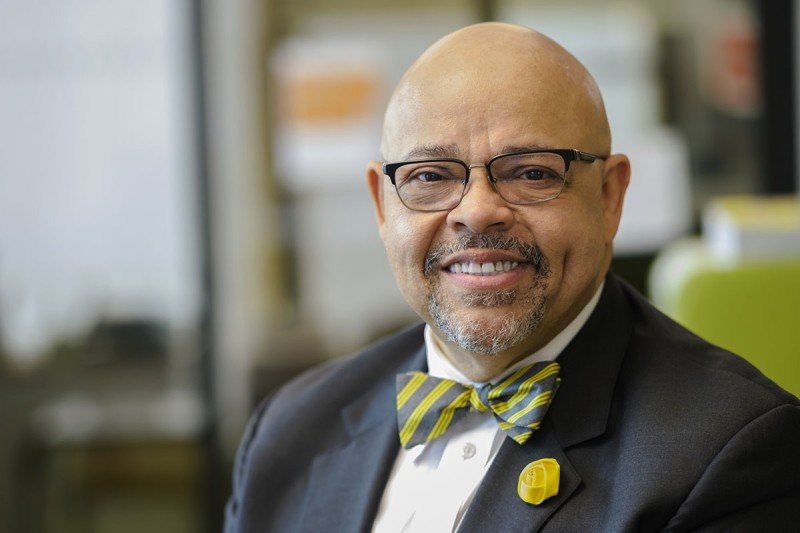
Charles Washington, Senior Director of Hospital Administration in Radiation Oncology, was born and raised in Detroit, Michigan. In 1967, when he was in third grade, he watched his neighborhood erupt in violence and looting during the Detroit Riots. Even as a young child, he understood the grief and rage people felt in response to systemic racism, but he could not support the destruction of his own community at the hands of some of his neighbors. He believed that we could, and should, do better.
Education Is the Foundation
Dr. Washington grew up with loving, hardworking parents. His father was a crane operator and his mother did childcare and custodial work — and they pushed him to be all that he could be. “My father was African American and my mother was white, but I identify as African American,” he says. While he was growing up, other children sometimes treated him cruelly, taunting him for being biracial, but Dr. Washington stayed focused on his goals, did well academically, and secured a scholarship for college.
He attended Wayne State University — the first in his family to go to college. “My mother always told me I was going to be a doctor,” he remembers. “I wanted to help people and enjoyed working with them.”
While he was in college, his father was diagnosed with lung cancer and treated with radiation therapy. “That was my first exposure to the field of radiation therapy,” says Dr. Washington. “I decided to pursue radiation therapy technology studies after that.”
When he completed his studies, he was offered a job as a radiation therapist at MD Anderson Cancer Center in Houston, Texas. During his tenure there, he was promoted to Director of Education for Radiation and joined the administrative team. He also became a published author. “I became an editor and author of the Principles and Practice of Radiation Therapy textbook, currently in its fifth edition. It’s a definitive work for radiation therapy practitioners and an accomplishment I’m very proud of,” says Dr. Washington.
In 2012, after 25 years at MD Anderson, Dr. Washington decided he was ready for a new challenge and felt it could only be found on the East Coast. “As a professional in my field, I felt strongly that the only other option for me after MD Anderson was MSK,” says Dr. Washington. “I took a leap of faith and challenged myself to continue to grow personally and professionally.”
A Commitment to Service
Dr. Washington’s path in life has been heavily shaped by his strong desire to help others. While in college, he became a member of the Alpha Phi Alpha Fraternity, Inc., the first Black Greek letter organization for college men in the country. Community participation and volunteerism are hallmarks of the organization.
“The work I did with the fraternity helped ignite my desire to give back,” says Dr. Washington. “I enjoy developing and mentoring others, and the fraternity really provided me with a springboard for that.”
Through his fraternity, Dr. Washington became active in the American Cancer Society and is passionate about raising awareness about cancer disparities and the Black community. “From an African American perspective, there is a lot more we can do in the world of care,” says Dr. Washington.
Dr. Washington is proud to be a leader at MSK and is passionate about helping to move the organization forward, especially following the COVID-19 pandemic and the past few years of a reignited social justice movement. “The progress we’ve made at MSK, especially with Equality, Diversity & Inclusion, is critical to our future,” says Dr. Washington. “During the pandemic, we had to move beyond what our comfort level prescribed. I also reflected on my experience as an African American to face those challenges and choose to do the right thing.”
The Meaning of Black History Month
In many ways, Dr. Washington’s direction in life was fixed from that moment in 1967 when he watched his neighbors driven to desperation. “African Americans have been engaged in every aspect of the development of this country — from being slaves to creating great inventions to rising to executive leadership positions,” says Dr. Washington. “Black History Month is an opportunity to highlight these achievements and value them, but this one month isn’t enough to reflect on all the contributions that have been made.”
Dr. Washington concludes: “Dr. Martin Luther King Jr. was one of my fraternity brothers and a hero of mine — a fair and inspiring leader. His contributions to the country and to the fight against racism, along with the many contributions of other Black people in this country, should be celebrated all the time — it’s the right thing to do.”